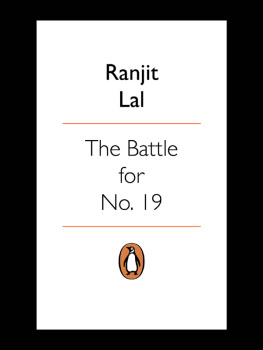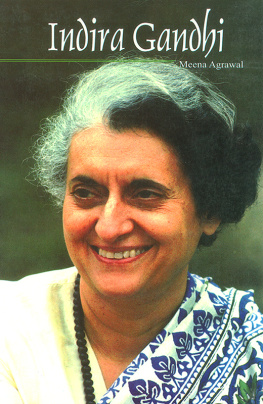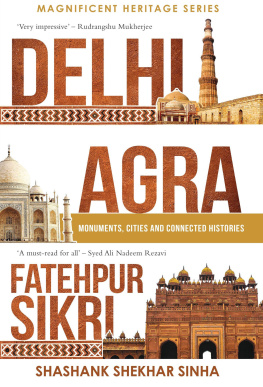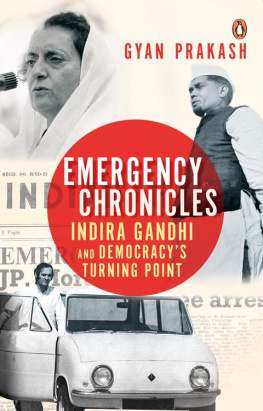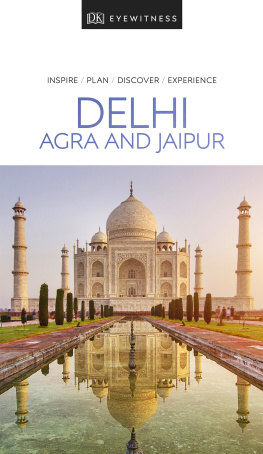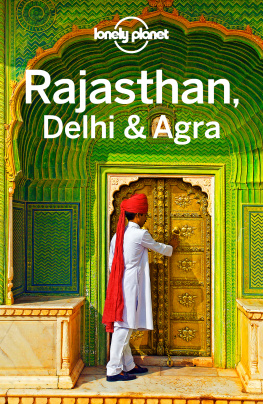Ranjit Lal - The Battle For No. 19
Here you can read online Ranjit Lal - The Battle For No. 19 full text of the book (entire story) in english for free. Download pdf and epub, get meaning, cover and reviews about this ebook. year: 2007, publisher: Penguin Books Ltd, genre: Detective and thriller. Description of the work, (preface) as well as reviews are available. Best literature library LitArk.com created for fans of good reading and offers a wide selection of genres:
Romance novel
Science fiction
Adventure
Detective
Science
History
Home and family
Prose
Art
Politics
Computer
Non-fiction
Religion
Business
Children
Humor
Choose a favorite category and find really read worthwhile books. Enjoy immersion in the world of imagination, feel the emotions of the characters or learn something new for yourself, make an fascinating discovery.
- Book:The Battle For No. 19
- Author:
- Publisher:Penguin Books Ltd
- Genre:
- Year:2007
- Rating:3 / 5
- Favourites:Add to favourites
- Your mark:
- 60
- 1
- 2
- 3
- 4
- 5
The Battle For No. 19: summary, description and annotation
We offer to read an annotation, description, summary or preface (depends on what the author of the book "The Battle For No. 19" wrote himself). If you haven't found the necessary information about the book — write in the comments, we will try to find it.
Eight school girls from the hills on a tour of Agra, drive into Delhi the day Indira Gandhi is assassinated. They run into a violent crazed mob that pulls their driver out and slays him.
The Battle For No. 19 — read online for free the complete book (whole text) full work
Below is the text of the book, divided by pages. System saving the place of the last page read, allows you to conveniently read the book "The Battle For No. 19" online for free, without having to search again every time where you left off. Put a bookmark, and you can go to the page where you finished reading at any time.
Font size:
Interval:
Bookmark:


PUFFIN BOOKS
UK | Canada | Ireland | Australia
New Zealand | India | South Africa
Penguin Books is part of the Penguin Random House group of companies whose addresses can be found at global.penguinrandomhouse.com.

This collection published 2007
Copyright Ranjit Lal 2007
The moral right of the author has been asserted
ISBN: 978-0-143-33034-9
This digital edition published in 2016.
e-ISBN: 978-8-184-75972-3
This book is sold subject to the condition that it shall not, by way of trade or otherwise, be lent, resold, hired out, or otherwise circulated without the publishers prior consent in any form of binding or cover other than that in which it is published and without a similar condition including this condition being imposed on the subsequent purchaser.
PUFFIN BOOKS
Ranjit Lal has written fiction and non-fiction for both adults and children. His books include The Crow Chronicles, The Life and Times of Altu Faltu, That Summer at Kalagarh, The Bossman Adventures and Bossman and the Thrown Away Family. His most recent books for Puffin were The Caterpillar Who Went on a Diet and Other Stories and When Banshee Kissed Bimbo and Other Bird Stories.
For Prapatito read again
Thanks to Usha Purie and the staff of the Nehru Memorial Museum and Library for assistance in researching the background on which this story is based.
To Vatsala for taking up the slack after the story was written.
NOTE: While the events described in this story pertain to the November 1984 riots in Delhi, they could have as easily occurred during any of the many, many such periods of barbarism that have rocked the nation previously or since.
Squashed between Sheetal and Ritika on the middle-row seat of the jeep, twelve-year-old Payal nudged Ritika.
Look at Puja! she said softly, her light brown eyes dancing. She has that moony look on her face again!
Ritika, just a year younger and the baby of the group, giggled and tucked her peppermint into one cheek, and nudged Sheetal who was dozing next to her, indicating with her eyes where she ought to look. I bet shes thinking of her boyfriend! she whispered loudly. Sheetal opened one eye, grinned and nodded sleepily.
Payal twisted around to face the back, where the other four girls sat. Sangita, dark with teeth so brilliantly white, Payal had once asked her if she cleaned them with Surf. Her own elder sister Seema, with the same whisky-coloured eyes (as she had heard her father once say) as her own, but sharp as a fox, ready to nip you with a cutting retort if you were ever foolish enough to argue with her. Facing them, on the left side, Ritikas older sister Gauri with her placid, oval face, so, so complacent-lookingalmost sheeplike, Payal thought. And Jaya, with that weird spaced-out stare of hers, but the pluckiest when it came to the langurs that often descended into their school playground and thumped noisily on the roofsshe had once been found by her mother dozing on the garden bench at home, with a langur carefully going through her hair, looking for nits.
Grinning wickedly, Payal pointed a finger again towards Puja, who had a benign daydreaming kind of smile on face, the sort that always made Payal think of the melted sugar at the bottom of her glass of milk. Again Payal silently mouthed the words, Boyfriend! Boyfriend! Boyfriend! but Puja seemed not to notice as she stared out of the window, the faraway look still in her eyes
The Taj: glimmering pearl-white against a powder-blue sky, the river lazy by its side, and then turning to pale pink and later to gold as the sun went down. (And that idiot cheapskate British viceroy or whoever wanted to dismantle it and sell the marble!) How much Shah Jehan must have loved Mumtaz Mahal. Someday perhaps someone would love her as muchAnd then Aurangzeb, the callous son, imprisoning his own father in Agra Fort, how much he must have hated him, or just wanted to be king so badly. Well, she didnt want to be king or queen or princess or anything reallyjust herself, if only Papa and Mama could see that! But how could Papa, when he hardly saw her at as someone who lived and breathed and ate and drank and studied and slept in the same house. And Mama, always bemoaning her fate and still blaming her, sixteen years later, for coming out first and for the death of the prince Ashwin, the twin who had followed her a few hours later but not made it beyond a day; for Mama not being able to have another baby (brother, of course). Papiha, they nicknamed her, Chacha and Chachi and all the other barracudas that were their relativesshe denied her own brother nourishment in the womb and killed him, just like an impostor papiha starves its rightful brothers and sisters and throws them out of the nest Puja sighed and smiled wryly and pinched herself. Stop it! she told herself. Stop ruining a lovely day! And count your blessings, girl, count your blessings.
When Aruna Ma am had come home to ask permission for this wonderful history tour of Delhi and Agra (and Fatehpur Sikri, of course) that she wanted to take her and the other girls on, armed to the teeth with reasons why they should be allowed to go, Papa had completely taken the wind out of her sails with his dismissive indifference. She can go if she wants to, he had said, shrugging, and had walked out of the room, his uniform immaculate, his swagger stick under his arm, his boot-heels like pistol shots on the wooden floor.
Oh, Aruna Maam had muttered, for once at a loss for words, fingering her short grey hair uncertainly. I see, very well, thank you, it will be very instructive But Papa had already left the room and Mama had smiled weakly and fluttered her hands and moaned about having to manage everything by herself for a whole week while Puja was away.
Aruna Maam had had a much harder time with the parents of the other girls. Straight-backed and determined, she had stormed into their homes and bulldozed, browbeaten, cajoled, sweet-talked, out-argued and flattered their parents into letting them go away for one whole week. Eight of them, all girls, and not a single parent had been able to refuse this iron-willed lady. Not even Jayas parents. Jaya, who had trouble being understood unless you spent a little time with her, but who could calm down an agitated dog or an irate monkey in seconds, and whose reeling fits of giggles could set the whole lot of them off uncontrollably. Even her harried parents had thrown up their hands (to this trip is what she needs mostthe feeling that she can manage on her own and is not left out of mainstream life!) and agreed, much to the girls delight.
Now of course it was all coming to an end as they had driven down from Agra that morning. As one last treat, the ever obliging Kartar Singh, their rambunctious sardar driver with the rumbling belly-laugh and Santa Claus beard and twinkling eyes sunk deep into furrowed cheeks, had shepherded them through a short tour of Tughlakabad Fort, keeping a fierce shaggy eye on the gangs of monkeys that swarmed the walls.
What a fort it must have been, thought Puja, with walls as broad as roads and those bulging bastions! Impervious to the most powerful cannon-fire and even earthquakes. Undermined with secret dungeons and tunnels. Where intruders, it was said, were greeted with boiling oil on their heads and steel spikes underfoot. And yet this massive, impregnable citadel had been abandoned because of the curse put upon it: there would never be water here. So only goats and shepherds roamed around it, ravaging the thorny scrub.
Font size:
Interval:
Bookmark:
Similar books «The Battle For No. 19»
Look at similar books to The Battle For No. 19. We have selected literature similar in name and meaning in the hope of providing readers with more options to find new, interesting, not yet read works.
Discussion, reviews of the book The Battle For No. 19 and just readers' own opinions. Leave your comments, write what you think about the work, its meaning or the main characters. Specify what exactly you liked and what you didn't like, and why you think so.

